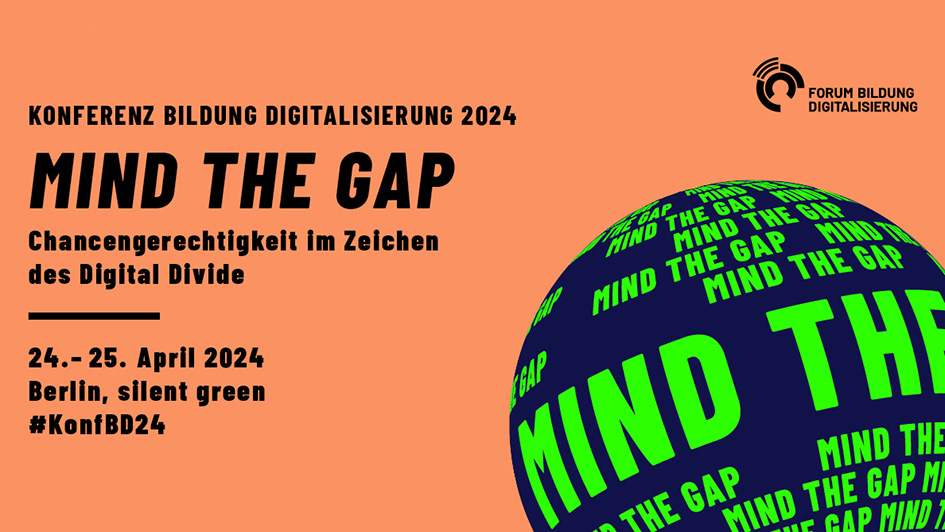„Mind the Gap!“
What does educational equity mean in the digital world?
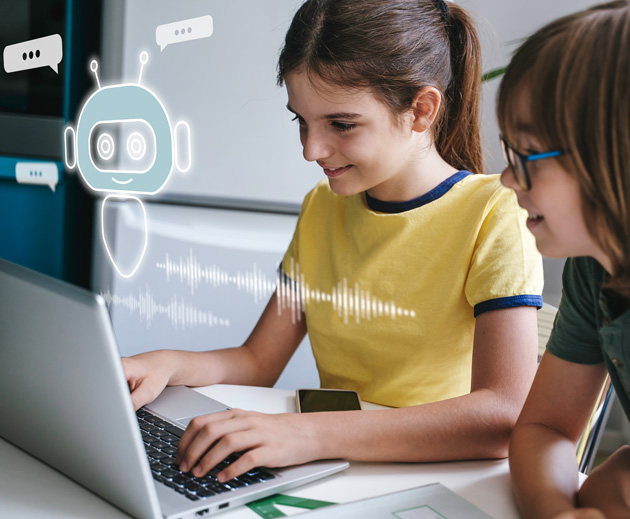
On 24 and 25 April 2024, the German non-profit organization Forum Bildung Digitalisierung (Forum Education Digitalisation), hosted the eighth conference on education and digitalization (KonfBD24). Under the motto “Mind the Gap!”, over 700 education experts and school representatives discussed the challenges of educational equity and equal opportunities in a digital world. In a panel focusing on “Where and how can equal opportunities succeed in digital practice?”, Dr. Nina Smidt, Managing Director of Siemens Stiftung, highlighted concrete implementation measures in everyday school life.
For a sustainable digital transformation in the education sector
The Forum Bildung Digitalisierung acts as a public dialog platform with the aim of pooling the numerous debates on digitalization in education and contributing to a sustainable strategy for the German education system.
As a co-founder of the forum, Siemens Stiftung, together with other renowned German foundations, has been inviting interested parties to participate in the exchange on site in Berlin or online for years. More than 700 participants and around 150 speakers attended the 2024 conference at silent green Kulturquartier. The two-day program included keynote speeches, panel discussions and individual sessions. Experts discussed current topics and challenges in the exchange panels. In addition, schools and educational institutions presented successful practical projects on digital transformation.
"Digital divide" as a challenge
The focus of this year’s conference was on the “digital divide”. Impulses from the comprehensively represented educational sciences underpinned the urgent need for action. Cross-references to international comparative studies such as PISA, outlined a heterogeneous, complex picture of educational polarization beyond the individual contributions.
Despite decades of effort, it has not been possible to compensate for the significant differences in socio-economic status and educational success in school and teaching design.
Results such as the IQB-Bildungstrend 2022 also remain sobering and show that pupils from families with a higher socio-economic status also have higher average skills scores. This makes it clear that traditional school education is still neither balanced nor equitable. With the wide opportunities that are shaping our society and culture through digitality, further new digital inequalities are emerging, which also have a reinforcing effect.
While differences between analog and digital become blurred in a highly digital world, in the language of the “third digital divide” unequal outcomes remain (Scheerder et al., 2019). The mere use of digital media or even artificial intelligence such as ChatGPT currently offer potential for teaching and learning, but do not change educational opportunities, especially if a general understanding of education is not questioned.
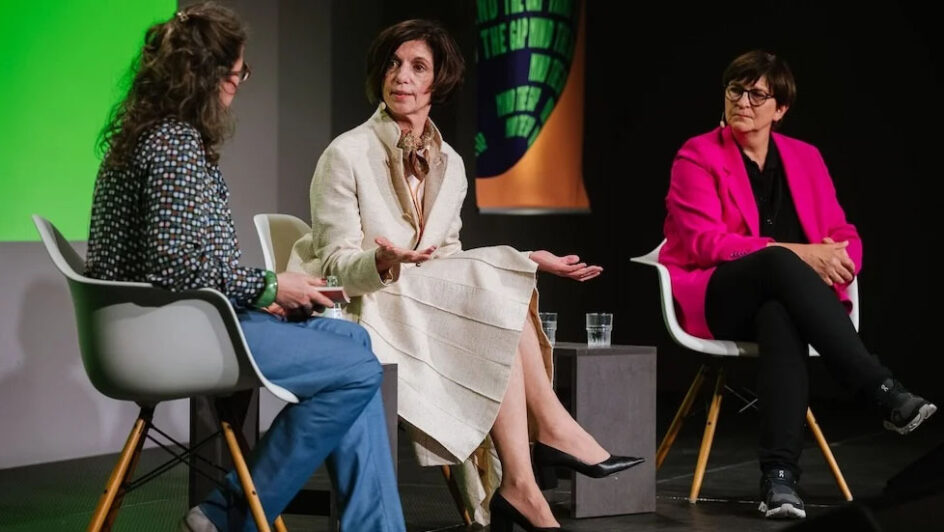
Rethinking educational equity
This became particularly clear in the Panel moderated by Dr. Nina Smidt, Managing Director and Spokesperson of Siemens Stiftung, on shaping an education that is fair in terms of opportunities and participation in school practice: Prof. Dr. Hans Anand Pant rom the Institute of Educational Sciences at Humboldt University in Berlin gave the participants an insight into the freedom of interpretation of the concept of educational justice. Prof. Dr. Pant used the analysis of the reports of the Standing Scientific Commission, of the German Conference of Ministers of Education and Cultural Affairs (KMK) to show which understandings of justice are predominant.
There are “legitimate and illegitimate” influences on “legitimate” inequality.
The role of the education system, the role of the individual school and the freedom of choice of the individual teacher were openly discussed by the participants and in the subsequent panel. Dr. Stephan Kielblock (DIPF / Leibniz Institute for Research in Education), Birgit Schröder (SINE-CURA School), Laura Bender (Teach First GmbH) and Jolina Leuschner (Berlin State Pupils’ Committee) shared their detail insights on their respective practices and experiences. Pupils also had the opportunity to contribute their opinions and comment on current efforts.
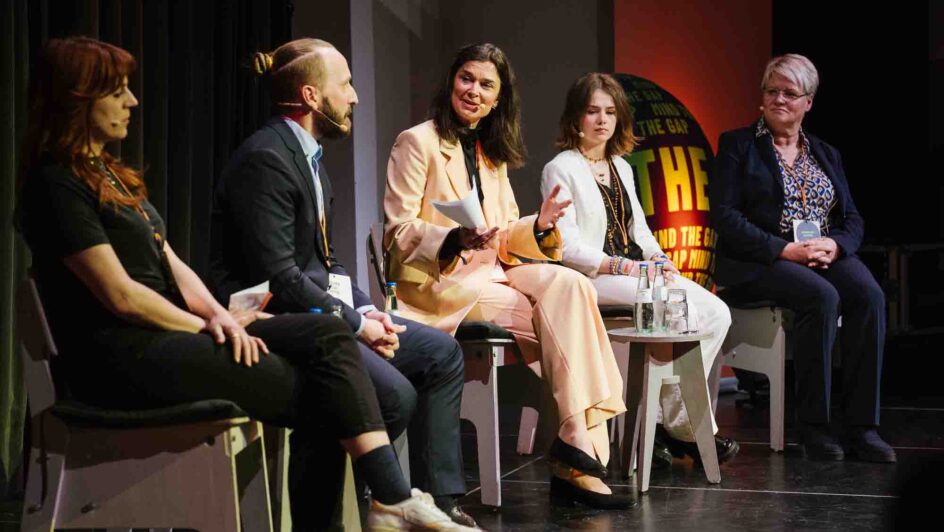
Adaptive learning environments and new opportunities in schools
The panelists came to a consensus that digitalization offers enormous opportunities for greater inclusion and participation. Be it through digital assistance systems in special education or adaptive learning environments that can be individually adapted to the needs of learners. Digital infrastructure – and its easy and natural use – is crucial. Extracurricular activities and all-day schools are also important starting points.
However, a change in mentality is required to enable equal participation in the digital age. Instead of waiting for perfect solutions, teachers should be open to new digital teaching and learning formats. At the same time, they must be given sufficient time to do so. Laura Bender summed up the discussion aptly: “What bothers me a little is this waiting for a big book on digital didactics to come out at some point, which won’t happen. We should just try out lots of things.”
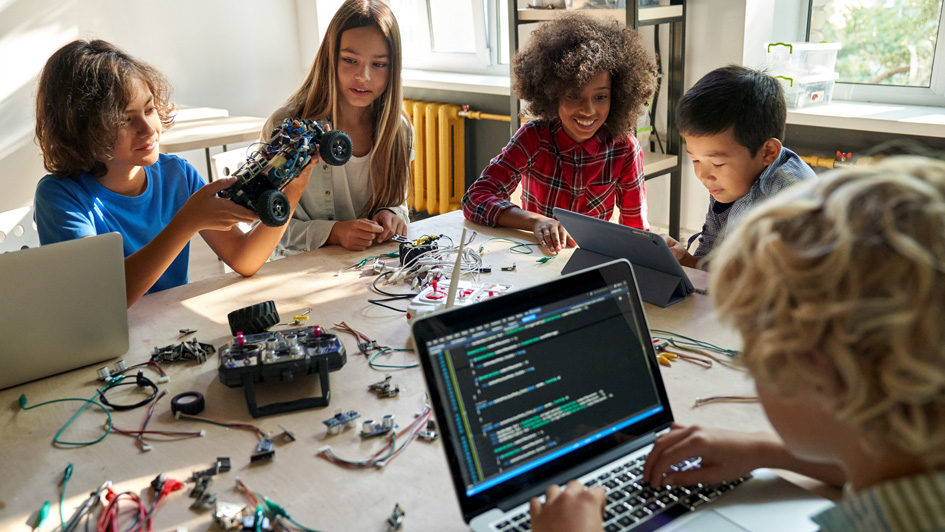
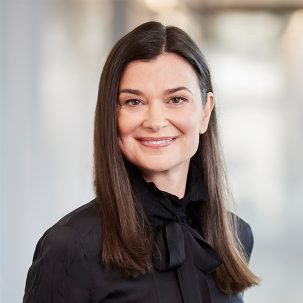
«Education for future generations means being able to navigate the digital world equally. This no longer just calls upon the individual person, but the opportunity to engage in a wide variety of communities.»
Dr. Nina Smidt, Managing Director of Siemens Stiftung
Opportunities through artificial intelligence and open education
In our digital era, an education system is only fair if it addresses more than just access to the internet. At the same time, it is a prerequisite for overcoming inequalities in a society whose defining culture and functions are increasingly organized online.
Standardization or the attempted equalization of educational biographies can therefore no longer be the answer to educational (in)equity in a culture of digitality. Artificial intelligence will only enable participation if it is ultimately not only accessible to everyone, but if education, teaching and learning are conceived in a transformative way. This is the only way to increase the opportunities for all people to participate in education. Open Educational Resources (OER) (OER) create fairer access to educational materials. You can find them on Siemens Stiftung’s Media Portal, among other places.
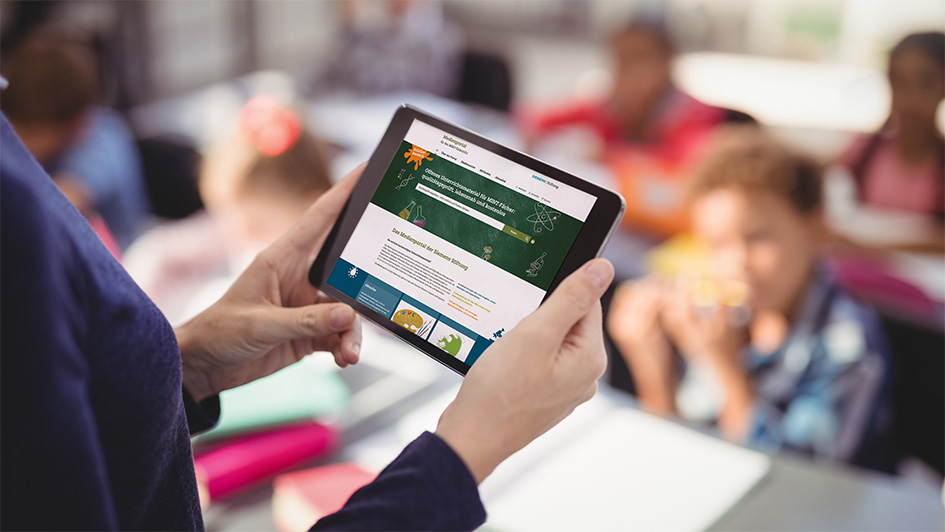
STEMplus imparts crucial skills
With STEMplus, Siemens Stiftung’s education team is pursuing an approach that no longer requires the division of knowledge into subjects, but rather deals with current problems. Our international experience in climate change education confirms that the conflagration of man-made climate change is being negotiated individually at a local level. If we are a connected society, only then can we meet the challenges of the 21st century.
Once again, the KonfBD24 has shown that the future of education is open: The future of education is open; however, we will not be able to solve the challenges of an indeterminate, fast-moving and climate-vulnerable world by following old paths. New skills are needed that will make participation and community in the world of the new millennium worth living in.
Panel: “Where and how can equal opportunities be achieved in digital practice?”
Watch the panel discussion with Dr. Stephan Kielblock (DIPF / Leibniz Institute for Human Development), Birgit Schröder (SINE-CURA School), Laura Bender (Teach First GmbH), Jolina Leuschner (Berlin State Student Committee) and Dr. Nina Smidt (Siemens Stiftung).
A contribution by Fabian Franz. Fabian Franz is an expert on education & digitality and part of our Medienportal team. The complete documentation of the Forum Bildung Digitalisierung 2024 conference you can find here.



